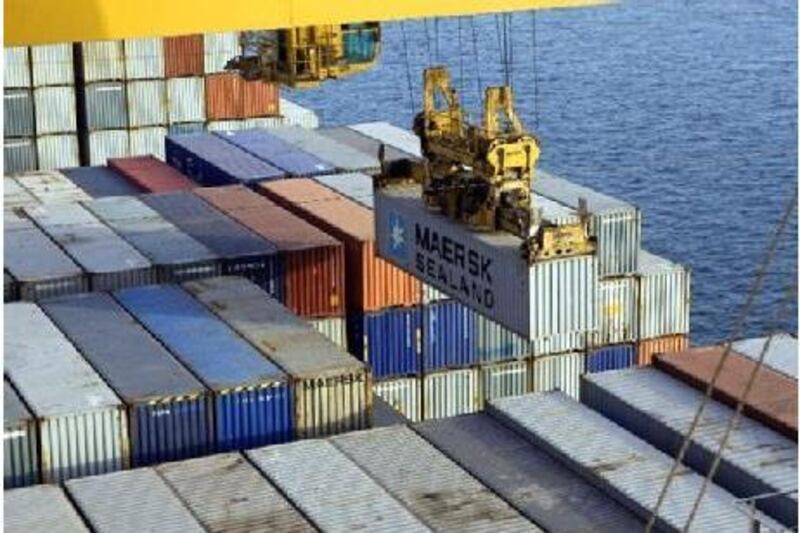Dubai has launched a scheme to supply grants for companies to establish new export markets as the emirate looks to further boost trade after the global financial crisis.
Under the export assistance programme, the first of its kind in the region, private sector firms will be able to apply for annual grants of up to Dh100,000 (US$27,227) to cover costs involved in securing export buyers in new countries.
The funding will cover the costs involved in market research, participation in trade exhibitions, visiting potential foreign markets and bringing prospective foreign buyers to Dubai.
"This service is the first of its kind in the GCC and through this initiative we are optimistic that more SMEs [small and medium enterprises] will be involved in seeking out and developing the export sector by exporting local goods and services," said Saed al Awadi, the chief executive of Dubai Export Development Corporation (EDC), which was launched by the Dubai Government three years ago to develop the emirate's export base.
Officials hope the scheme will give a competitive advantage to existing exporters looking to identify new markets and companies intending to begin exporting.
The scheme will provide an important tool in the emirate's drive to increase exports by 11 per cent every year. Officials say that goal may now be revised after the financial downturn.
Trade has already been positioned as one of the core elements of the Dubai Strategic Plan 2015 as other industries such as the property and financial sectors show signs of a slower recovery.
Dubai's exports have rebounded strongly from the downturn, rising by 40 per cent in the first seven months of the year compared with the same period last year. Re-exports rose 28 per cent in the same period. Nevertheless, the projection of export growth is expected to flatten somewhat next year as the global economy resumes a more normal pattern of expansion after the downturn.
Although export assistance programmes are a new concept to the Middle East, a number of leading economies including the UK and Australia, already have similar organisations.
Abu Dhabi hopes to have established by the end of next year its own version of the scheme, called an export promotion agency. Unlike Dubai, however, the capital also plans to establish an export credit agency, which would issue loans to overseas companies that import goods produced in the emirate.
Since the soft launch of the programme in August, about 10 companies have already signed up to the Dubai scheme, with EDC hoping to have another 40 enlisted by the end of the year. Companies involved in the food, plastics, services and building materials sectors are among those to have registered an interest in the scheme.
Companies must be exporting goods or services that are either of UAE origin.
"SMEs are given the freedom to participate in any specific activities independently, falling under the four broad categories of activities covered by the programme, where they see the potential of success and growth," said Mr al Awadi.





